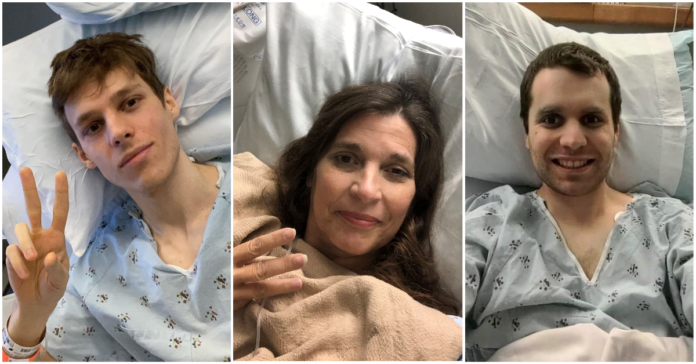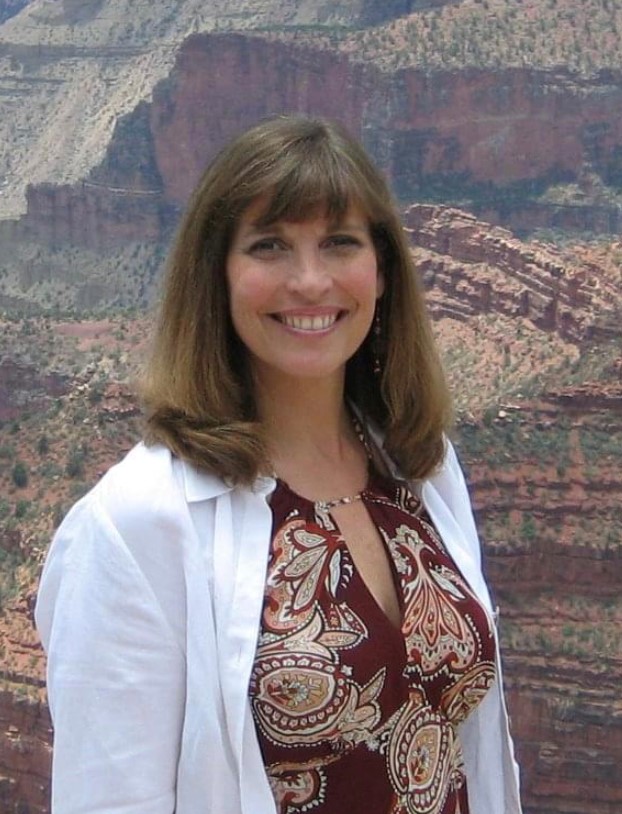
Amy Parker Zupancic and her sons have started a unique family tradition: kidney donation.
The Mercer Law School alumna and sons Daniel and Caleb McCracken have each served as altruistic or non-direct donors — meaning they gave one of their kidneys to someone they didn’t know — over the past year and a half. All three had their surgeries at Piedmont Atlanta Hospital.
Zupancic, who prior to relocating to Blue Ridge this fall had lived in Dunwoody since the 1970s, graduated from Mercer Law in 1988 and holds a bachelor’s degree in accounting and master’s degree in information systems from Florida State.
She practiced financial law at Long Aldridge & Norman (now Dentons) for several years and served as a librarian at the Galloway School in Atlanta while her children grew up. She eventually went back into law at Morgan & Morgan, doing catastrophic injury and specialty death cases before transitioning into class-action lawsuits. She retired in April but continues to serve as a legal research consultant.

The kidney donations started with Zupancic’s youngest son, Caleb, 29, a Yale-trained attorney who lives in Baltimore. With no prior mention on the topic, he called Zupancic one day, said he would be donating a kidney in a couple weeks and asked if he could recover at her house.
Caleb underwent surgery in June 2021. As a result of the experience, he has decided to go back to school to become a doctor, Zupancic said.
Daniel, 31, a data analyst in Denver, followed his brother’s lead and donated a kidney in December the same year. By that time, Zupancic had already started the process to become a donor herself. Taking care of her sons during their recoveries and spending time in Piedmont’s kidney center further reinforced and motivated her wish to be a donor.
“I was sitting there during the testing and looking around at all these people who needed kidneys,” she said. “The waiting room was packed with all of these people who were having real challenges in their life that I could help. As I looked at these people, I thought, ‘Why wouldn’t I help?’ I couldn’t think of any reasons why I shouldn’t do this.”
Because of her age, she had to undergo more extensive testing and requirements than her sons. She was cleared in March 2022 but put her donor status on pause for six months while she and husband John were in Maine and Nova Scotia, where they live half of the year. Things moved quickly once she returned to Georgia in October.
“When they activated my name, I was matched within 24 hours. I had a very desirable kidney, apparently,” she said with a laugh.
About 10 days later, Zupancic had surgery. Like her sons, her recovery was smooth and quick. She said the recovery on the donor side is much less daunting than most people realize. She took it easy for a few days and was back to working remotely within a week.
According to the National Kidney Foundation, about 100,000 people are waiting for a kidney transplant at any given time.
“People wait and wait and wait, and a lot of people pass away while waiting,” Zupancic said. “The idea that if you’re healthy enough you could help somebody live a longer life is an incredible thing to do and was so easy for me and my sons. It was a way to make a significant difference in somebody’s life with no long-term impact for me.”
During non-direct organ donations, it is up to the donor and recipient if they would like to be in contact. Zupancic and the recipient of her kidney were both interested in connecting and had a phone conversation. They are now “kidney buddies for life,” she said.
Zupancic said her family’s support was a vital part of her journey to become a kidney donor. And now, she and her sons share a special bond because of their experiences. She hopes that her family’s actions will serve as an inspiration to others.
“I would love as a result of our story that one person gets serious about seeing whether they can donate,” she said.
Visit kidney.org to find out more about kidney donation.








